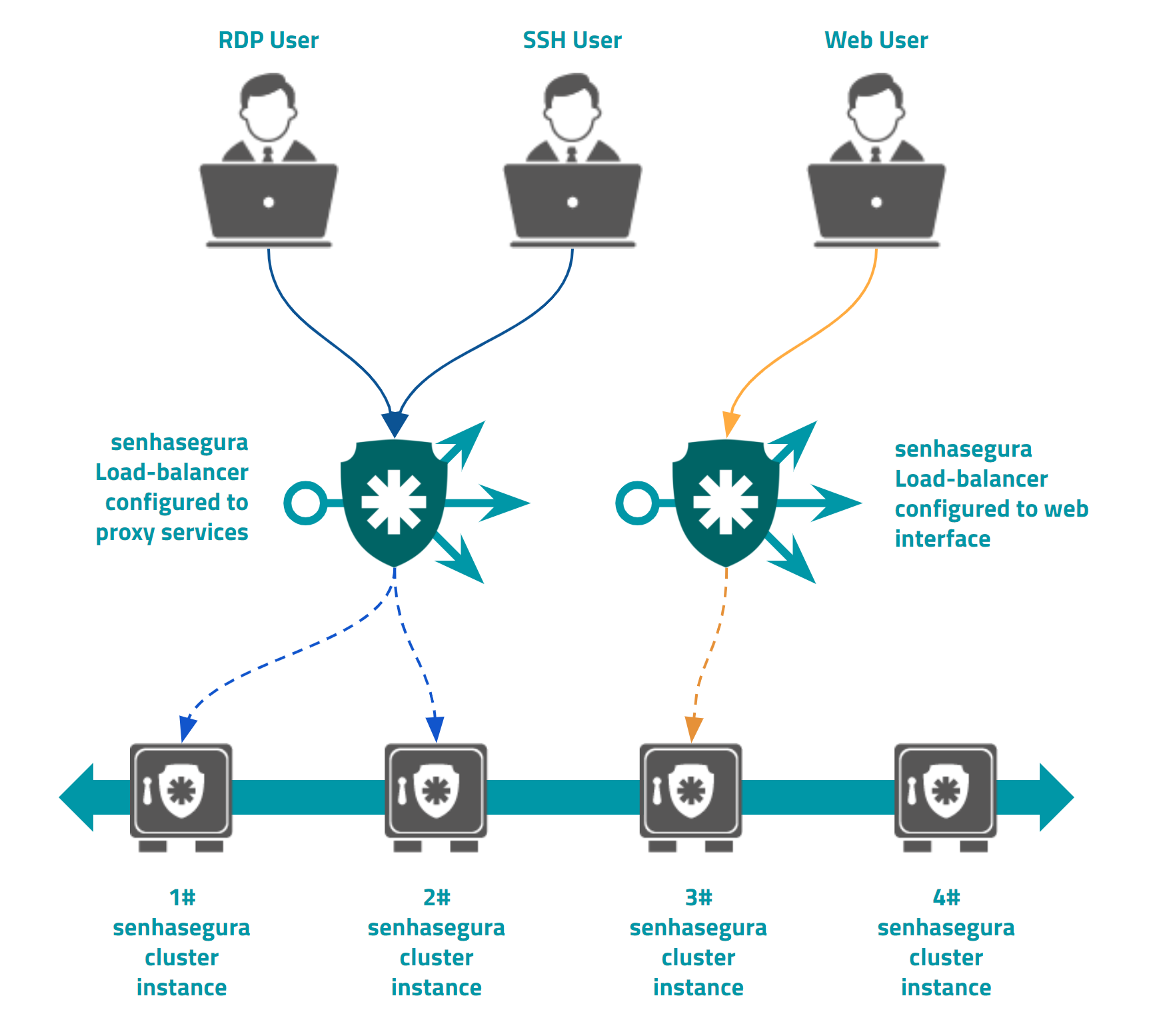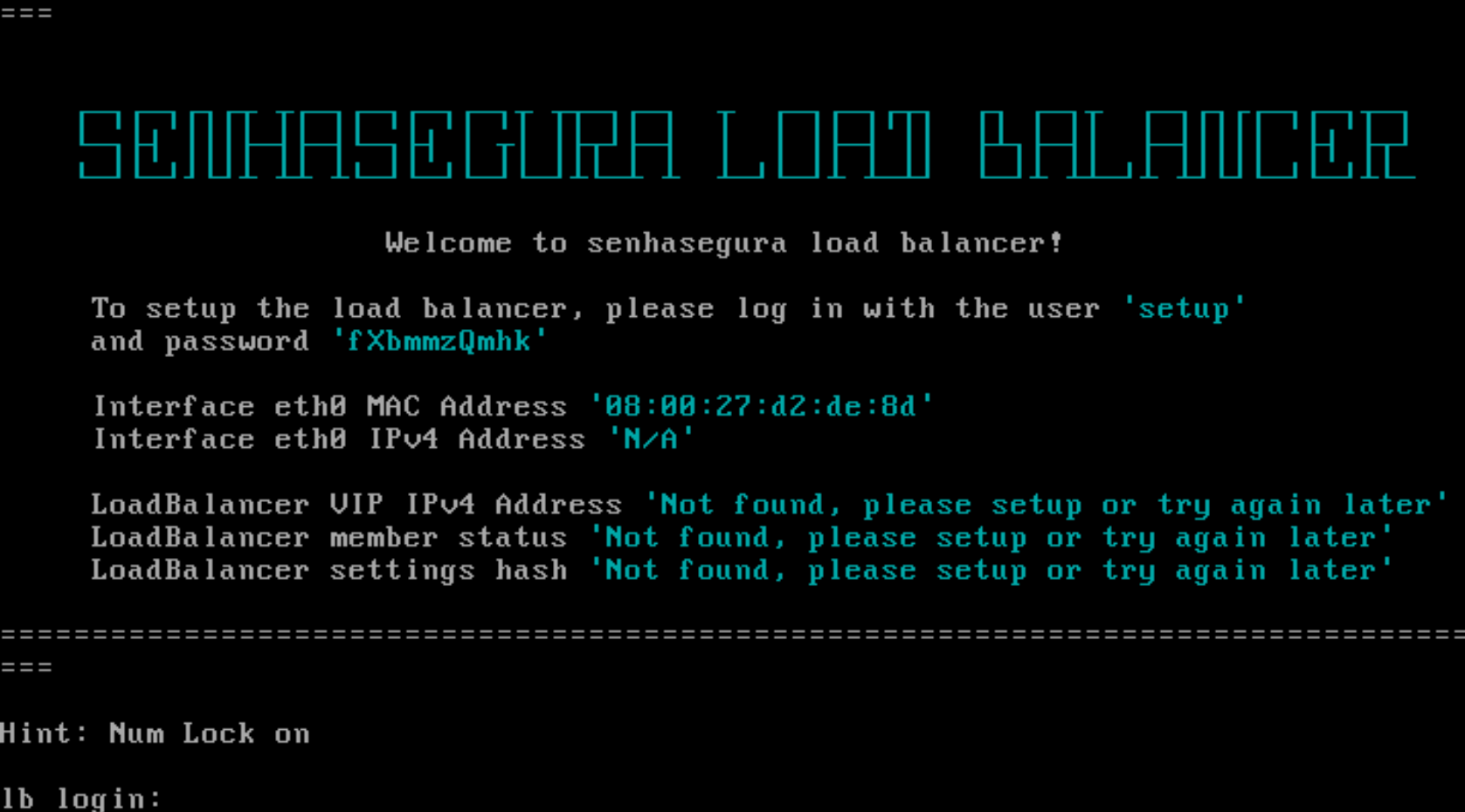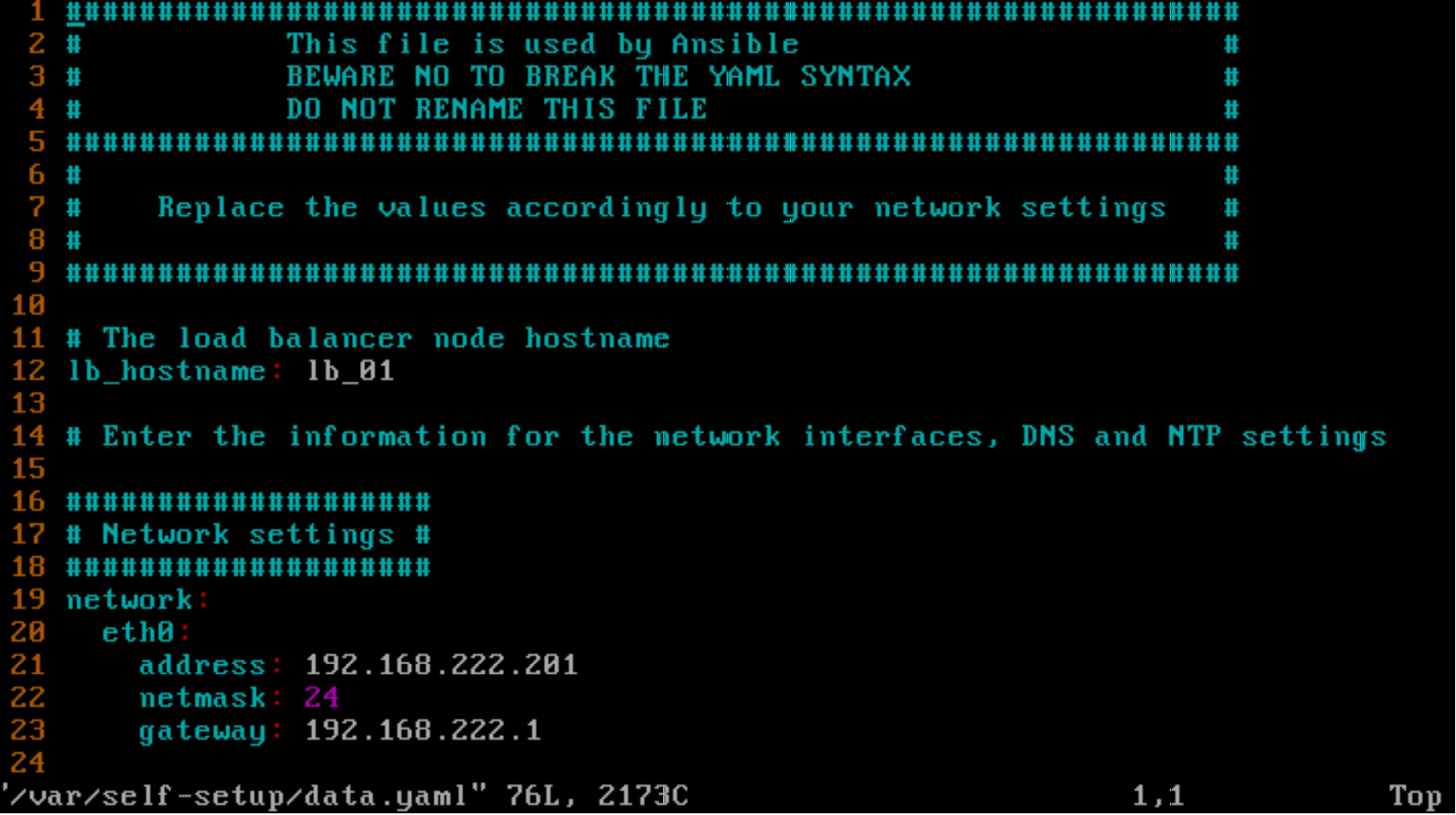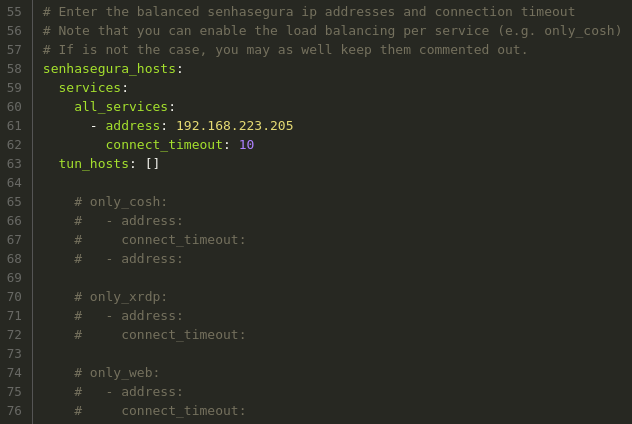Load Balancer
Introduction
senhasegura has a self-made load-balancer to interface all senhasegura instances running into cluster schema. The senhasegura Load-balancer is a ready-to-deploy and also a ready-to-use solution, configured to give the best performance over senhasegura functionalities.
Installation and usage
Technical informations
The senhasegura Load-balancer minimum requirements are:
4GB RAM;
2 vCPUs (4 vCPUs recommended);
40GB vHD;
It will use the same SSL certificate installed into senhasegura instances. There is no need to install a particular SSL certificate for the load-balancer.
As it is a tailor-made product for balancing the senhasegura , the senhasegura Load-balancer has a very specific optimization, and should not be used to balance other applications. Therefore, we do not offer the option of changing the balancing method and/or monitoring methods to the customer. Its use the least connection algorithm for balancing mode.
senhasegura , using the active-active redundancy, can be integrated with lots of load balancer vendors, such as F5 Big IP, Citrix, IBM etc.

Using senhasegura Load-balancer you can also decide which service should be balanced. A company which uses SSH connections more than the others proxies, can isolate dedicate instances for a better performance.
OVA installation
First you have to deploy the senhasegura Load-balancer OVA into your hypervisor using the recommended requirements;
At the first boot, you will be presented to the following screen:

First boot screen Following the banner instruction, do the login using the
setupuser and the random generated password also displayed at the banner;You will be redirected to a text editor to complete the load-balancer network configuration. Follow the fields descriptions to fill correctly;

Load-balancer network configuration First you should configure the load-balancer network configuration. Into this step you also have to register all load-balancers IPs;
All load-balancer instances IPs Next, you have to configure all senhasegura application instances. This configuration should be the same on every senhasegura Load-balancer instances;
Into this step you can decide to balance all senhasegura instances services or just senhasegura Proxy services;

All senhasegura application instances to be balanced Save and exit the text-editor;
The load-balancer will reboot and the login banner will be presented again with all variables configured;
If you decided to deploy more than one senhasegura Load-balancer instance, you should keep all senhasegura Load-balancer instances with the same senhasegura members configuration order!